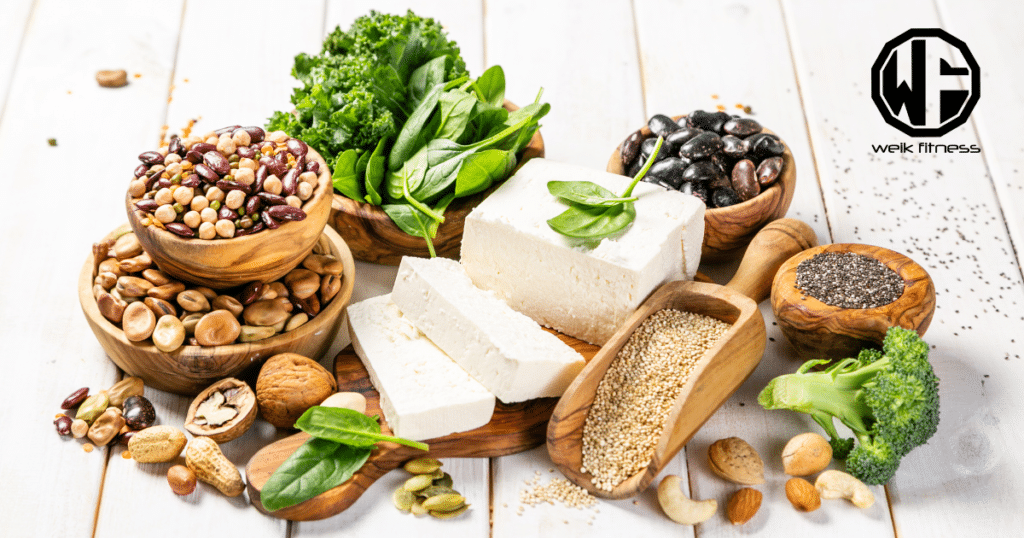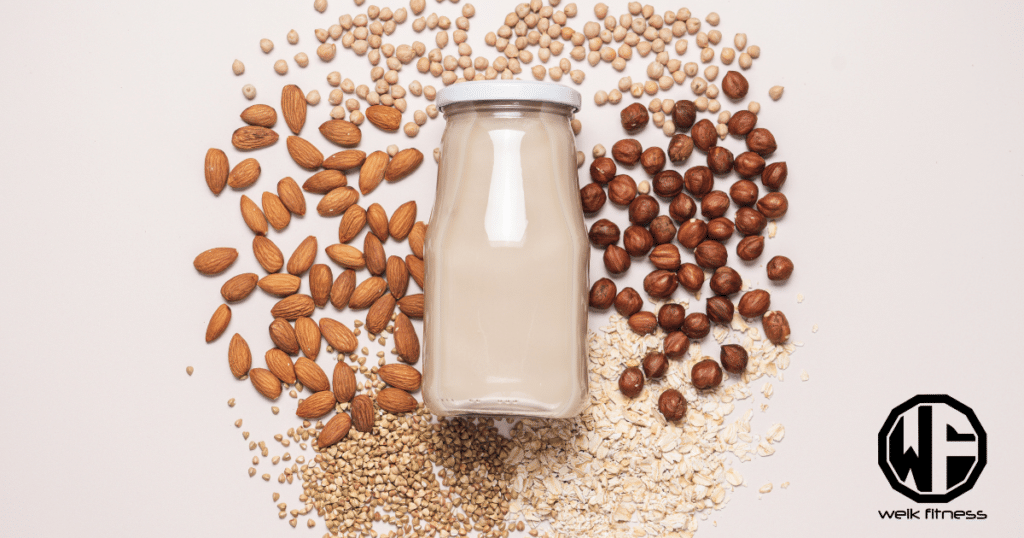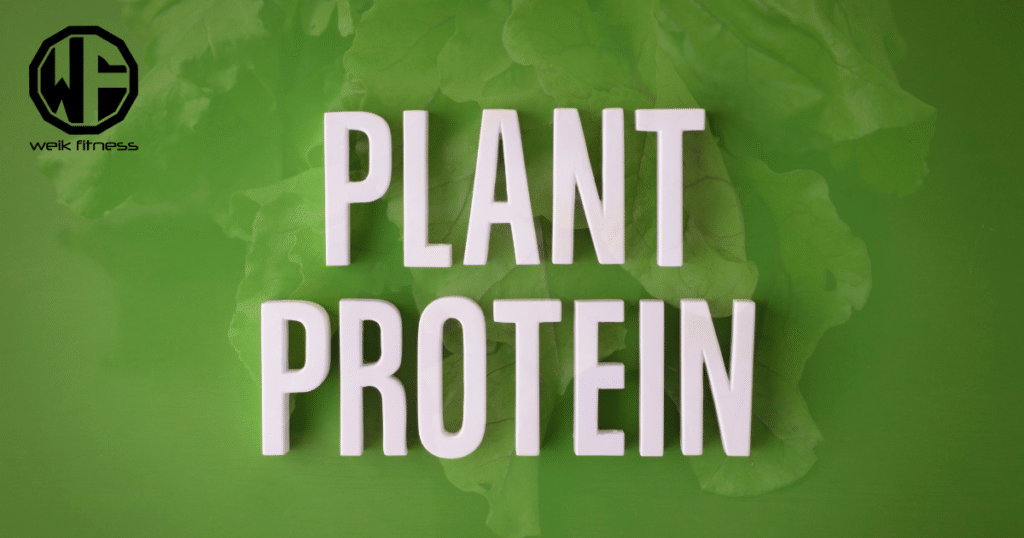Is Plant Protein Showing Growth in the Supplement Market?
Is it possible that plant protein is finally becoming more relevant in the supplement market?
For years, whey protein has dominated the shelves, appearing in everything from protein bars and shakes to versatile powders and even savory food items.
But as costs rise and more people seek dairy-free options, a powerful contender is gaining ground. Plant protein is no longer a niche alternative; it’s a booming market.
In fact, the global plant-based protein market is valued at over $20 billion in 2025 and is projected to grow significantly. This isn’t just a trend, it’s a fundamental shift in how we think about fueling our bodies. As a certified sports nutritionist, I’ve seen firsthand how incorporating plant-based options can be a game-changer for health and performance.
This guide will break down what you need to know about plant protein, from its powerful benefits to how it truly stacks up against whey for building muscle, and whether it’s the right choice for your fitness journey.
Disclaimer: This article is for informational purposes only and is not meant to treat or diagnose any condition. It is recommended that you speak with your doctor before starting any exercise program, changing your daily nutrition, or adding any supplements to your regimen.
Table of contents
Key Takeaways
- Market Growth: The plant protein market is experiencing significant growth, with projections showing it will reach over $46 billion by 2035, driven by consumer demand for sustainable and health-conscious options.
- Diverse Sources: Plant protein comes from a wide variety of sources, including legumes, soy, nuts, seeds, and whole grains, each offering unique nutritional benefits.
- Muscle Building: When combining different sources to create a complete amino acid profile, plant protein can be just as effective as whey for building muscle and aiding recovery.
- Consumer Demographics: Plant-based proteins appeal to a broad audience, including vegans, individuals with lactose intolerance, and flexitarians looking to reduce their meat consumption.

What is Plant Protein?
Plant protein is simply protein that is derived from plants. Unlike animal-based proteins that come from meat, dairy, or eggs, these proteins are harnessed from a wide array of plant sources, offering a powerful and sustainable way to meet your nutritional goals.
These proteins are becoming a cornerstone in diets worldwide for their health and environmental benefits. They are naturally lower in saturated fat and cholesterol and are packed with fiber and essential phytonutrients that you won’t find in animal products.
Common Plant Protein Sources and Their Benefits
The variety of plant protein sources is vast, allowing you to easily diversify your diet. Some of the most popular and effective sources include:
- Legumes: This category includes lentils, chickpeas, and black beans. They are not only protein powerhouses but are also rich in fiber, which supports healthy digestion and provides sustained energy. For example, just a half-cup of lentils packs about 9 grams of protein.
- Soy Products: Tofu, tempeh, and edamame are excellent because they are “complete” proteins, meaning they contain all nine essential amino acids your body needs for muscle repair.
- Nuts and Seeds: Almonds, chia seeds, and hemp seeds are fantastic for both protein and healthy fats. Hemp seeds are another complete protein source, and just three tablespoons can provide around 13 grams of protein.
- Whole Grains: Foods like quinoa and oats offer a solid protein boost. Quinoa is another one of the few plant-based complete proteins, making it a valuable addition to any meal.
One common myth is that plant proteins are inferior because some sources are “incomplete.” However, as a sports nutritionist, I advise my clients that by simply eating a variety of these sources throughout the day, you can easily get all the essential amino acids your body requires.
Who is Plant Protein Good For?

Plant protein is an excellent choice for a wide range of people, not just those following a strict vegetarian or vegan diet. Its versatility and health benefits make it a valuable addition for almost anyone looking to optimize their nutrition.
The rising popularity is largely driven by “flexitarians,” a group that makes up about 25% of U.S. consumers who eat both plants and meat but are actively trying to reduce their meat consumption. Here’s a breakdown of who can benefit most:
- Vegetarians and Vegans: For those who avoid animal products, plant proteins are the essential foundation for meeting their daily protein needs and supporting an active lifestyle.
- Individuals with Lactose Intolerance: Plant protein offers a fantastic alternative to dairy-based whey or casein proteins, preventing the digestive discomfort that often comes with lactose.
- Health-Conscious Consumers: If you’re looking to lower cholesterol and reduce saturated fat intake, plant-based proteins are a smart choice. They are also typically high in fiber, which aids in satiety and weight management.
- Environmentally-Minded Individuals: The production of plant proteins generally has a much lower environmental footprint, requiring less land, water, and generating fewer greenhouse gas emissions compared to animal protein.
- Athletes and Fitness Enthusiasts: Contrary to old beliefs, you can absolutely build and maintain muscle with plant protein. Modern plant protein powders, like those from brands such as Orgain or Garden of Life, often blend sources like pea and rice to create a complete amino acid profile that rivals whey.
Is This the Year of Plant Protein Products?

I’ve watched several brands launch plant protein powders over the last few years, and now it appears that even bar manufacturers are jumping on board. It’s a clear sign that the market is responding to a major consumer shift. PowerBar, a legacy brand in the energy bar space, made a strategic move by launching its own line of plant-based bars.
As their brand manager noted, consumers are becoming more selective about their protein sources, and this has fueled the popularity of plant-based options. From my experience in the industry, it’s impressive to see a brand pivot so quickly. Many companies fail to adapt to changing demands, so it’s refreshing to see an established player embrace this trend.
A key challenge for formulators is taste and texture. Early plant proteins were often criticized for a “gritty” or “earthy” flavor. PowerBar addressed this by using a blend of peanuts, cashews, and almonds, along with rice and pea protein crisps. The healthy fats from the nuts help mask the bitterness sometimes associated with pea protein, creating a much better flavor profile.
This attention to taste is crucial. Anyone who ate a protein bar in the 90s remembers chewing on something that resembled cardboard. Today’s market is completely different, with brands like No Cow and Misfits creating plant-based bars that are not only effective but also genuinely delicious, rivaling traditional candy bars in taste.
Will the Plant-Based Movement Continue?

All signs point to yes. The driving forces behind the movement, such as health, sustainability, and ethical concerns, are only getting stronger. According to a 2025 report from MarketsandMarkets, the plant-based protein market is expected to grow from $23.8 billion to nearly $34.9 billion by 2030. That kind of financial momentum indicates a long-term shift, not a fleeting trend.
However, there are still hurdles to overcome. One common point of comparison is protein content. For example, PowerBar’s whey-based bars typically contain around 20g of protein, while their plant-based versions offer about 10g. This isn’t a flaw, but rather a reflection of different product goals.
Related Article: The Best Plant-Based Protein on Amazon [Top 10 Edition]
As PowerBar explained, the 10g bar is positioned as a snack to provide energy and satiety without feeling heavy, targeting a broader “natural consumer.” The 20g whey bars are aimed more at post-workout recovery. This diversification is smart, as it introduces new people to the protein bar category.
The company behind PowerBar, Post Holdings, is clearly invested in capturing this active lifestyle demographic through its BellRing Brands subsidiary. They previously launched a “Clean Whey Protein Bar” to remove artificial ingredients, showing they understand the demand for cleaner labels. This trend is a major opportunity for plant-based products, as 44% of U.S. consumers are actively trying to eat less processed foods.
What’s My Take on All of This from My Years in This Market?
For those who don’t know my background, I spent a significant part of my career in the supplement industry, including as a Director for MET-Rx. MET-Rx was eventually acquired and is now owned by The Bountiful Company, which also manages brands like Balance Bar and Pure Protein. I’ve had a front-row seat to the industry’s evolution.
I’ve seen trends come and go. Companies invest millions in new technology and ingredients, but success often comes down to timing and marketing. Many brands enter a hot space like plant-based protein, but only a few truly innovate and build a lasting presence.
So, do I think plant-based bars will replace whey? Not entirely, and not anytime soon. Whey protein is still the king in terms of market share and rapid absorption, which is ideal for post-workout recovery. Its bioavailability, or how well the body can use it, is extremely high.
However, I firmly believe plant protein will continue to capture a larger and larger share of the market. The innovation in taste and texture is solving the early adoption problems. Brands are now creating sophisticated blends of pea, rice, hemp, and even fava bean protein to deliver a complete amino acid profile and a smooth, enjoyable experience. Companies like Burcon NutraScience are developing high-purity hempseed isolates that could be game-changers.
The future isn’t about one replacing the other. It’s about a diversified market where consumers have high-quality, effective choices that align with their specific health goals, dietary needs, and personal values.
FAQs
Can you really build muscle with plant protein?
Yes, absolutely. Studies have shown that as long as you consume enough protein to meet your goals, plant-based sources can be just as effective as whey for muscle growth. The key is to choose a complete protein source, like soy or quinoa, or use a protein powder that blends different plant sources (like pea and rice) to ensure you get all nine essential amino acids.
Is plant protein easier to digest than whey?
For many people, yes. Plant proteins are naturally lactose-free, which is a huge benefit for the large portion of the population with lactose intolerance or sensitivity. This can mean less bloating and digestive distress compared to dairy-based proteins. Additionally, they often contain fiber, which supports gut health.
What are the best-tasting plant protein powders?
Taste is subjective, but many of the top-rated brands have made huge strides in flavor. Brands like Vega, Orgain, and Garden of Life are consistently praised for their smooth textures and delicious taste. They often use natural sweeteners like stevia or monk fruit and come in a variety of flavors, from classic chocolate and vanilla to more adventurous options.
Are there any downsides to plant protein?
The main considerations are the amino acid profile and bioavailability. Some individual plant sources are “incomplete,” but this is easily solved by combining sources. Some plant proteins can also contain anti-nutrients like phytates, which may slightly reduce the absorption of minerals like iron and zinc. However, for most people eating a varied diet, this is not a significant concern. It is also important to choose products from reputable brands that test for heavy metals, as soil quality can impact the final product.


*Disclosure: This article may contain affiliate links or ads, which means we earn a small commission at no extra cost to you if you make a purchase through these links. These commissions help support the operation and maintenance of our website, allowing us to continue producing free valuable content. Your support is genuinely appreciated, whether you choose to use our links or not. Thank you for being a part of our community and enjoying our content.
PLEASE CONSIDER SHARING THIS ON YOUR SOCIAL MEDIA TO HELP OTHERS LEARN MORE ABOUT THIS TOPIC.





